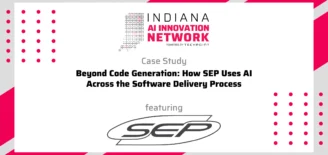The Death of Ideation Tech Startups in the AI Era
In the golden age of tech entrepreneurship, all it took was a compelling idea, a strong team, a minimum viable product , and a well-designed pitch deck to get a foot in the door with investors. Ideation-stage startups, companies built around nascent concepts with minimal traction, were once the darlings of seed-stage venture capital. A quiet revolution is accelerating in a major way: the AI era is rendering the ideation-stage startup nearly obsolete.
The democratization of tools powered by artificial intelligence, especially generative AI, has dramatically altered the calculus of what it means to build something new. With the click of a button, founders can now generate business plans, code prototypes, create product mockups, run user interviews via AI agents, and produce marketing collateral. As a result, the bar for what constitutes a “startup worth funding” has risen, and venture capitalists are no longer impressed by raw ideas alone.
Why Ideas Alone Don’t Cut It Anymore
At its core, a startup’s early value came from the novelty of its idea and the founder’s ability to execute. As AI becomes the co-pilot of modern entrepreneurship, the ideation phase has become compressed, automated, and commoditized.
ChatGPT can write your business plan. GitHub Copilot can write your code. Midjourney or DALL·E can design your UI. Tools like Notion AI or Gamma can create pitch decks and marketing campaigns. And AI customer discovery tools can simulate user feedback before you even launch a product.
This means that what used to take six months and a founding team of three can now be done over a long weekend by a solo founder with a laptop. The implication? The very activity that defined ideation-stage startups, turning an idea into something fundable is no longer scarce, nor particularly difficult. The moat has vanished.
The VC Perspective: Signal vs. Noise in an AI-First World
Venture capitalists are inherently in the business of betting on the future. But even the most risk-tolerant VCs now face an overwhelming deluge of AI-assisted projects. Pitch decks are flooding inboxes. Product demos are sleeker than ever. But the signal-to-noise ratio is deteriorating.
“In the past, we would underwrite a $500k pre-seed round on the strength of an idea and a team,” says David Kerr, Managing Partner at Allos Ventures, a well-known early-stage VC fund based in the Midwest “With AI, you need to have a more discerning eye because it is easier for an entrepreneur to have a polished deck and working prototype. We’re looking for early traction with strong utilization and value for the customer or deep domain differentiation right out of the gate.”
As a result, VCs are shifting strategies in three key ways:
- Favoring Execution over Ideation
Investors want to see real market validation: revenue, usage metrics, signed LOIs, or at the very least, a well-formed go-to-market plan informed by actual customer conversations. The “ideation phase” has become a personal project, not a fundable milestone.
- Valuing Proprietary Data and Distribution
With AI models being widely accessible, the differentiator is no longer the algorithm but the data or customer base it interacts with. Investors increasingly prioritize startups with proprietary datasets, unique access to regulated markets, or embedded distribution advantages (e.g., existing communities, strategic partnerships, or embedded enterprise integrations).
- Rethinking Fund Allocation
VCs are rethinking portfolio construction. More capital is being reserved for follow-ons to breakout performers rather than spread across many idea-stage experiments. There’s also a rise in thesis-driven micro-funds or studios that help founders go from 0 to 1 faster, using AI tooling internally rather than funding external founders at the idea stage.
AI Reduces Friction, but Also Reduces Moats
AI is brilliant at accelerating startup creation, but it’s just as effective for competitors. The result is a race to the bottom in many early-stage categories. AI-first CRMs, note-taking apps, marketing generators, and customer support agents flood the market, each with polished UI and GPT-powered features, but few with lasting differentiation.
In this landscape, first-mover advantage is fleeting unless paired with strong defensibility. Investors now assess whether the founding team has access to non-obvious insights, domain expertise, or unique go-to-market advantages.
Studios, Serial Founders, and the Rise of the “Zero-to-One Machines”
As traditional ideation-stage founders lose ground, startup studios and repeat entrepreneurs are taking center stage. These operators often work with AI tools internally to iterate on hundreds of ideas, rapidly validating assumptions and spinning out companies with pre-baked teams, funding, and customer access.
From a VC lens, this is far less risky than backing a solo founder with a fresh idea. Many early-stage funds now prefer backing venture studios or partnering with operators who already have repeatable playbooks. The founder’s personal story still matters, but their network, track record, and speed of execution are weighed more heavily than the brilliance of their idea.
The Emotional Toll on Founders
This shift has introduced a psychological challenge for first-time entrepreneurs. Many are discovering that their “big idea” is not enough to stand out in an AI-fueled world. The democratization of tools may have democratized funding, but it has also raised the expectations on what qualifies for backing.
Founders are being told: “Come back when you have traction.” Yet, for many, that means bootstrapping longer, competing against well-resourced operators, and navigating an increasingly noisy market. Ideation used to be a rite of passage; now, it’s just table stakes.
“The best founders are relentlessly customer-focused, tackling tough, meaningful problems with grit,” says Aman Brar, Founding Partner at Ground Game. “Nail your go-to-market, build a devoted customer community. That’s where real value and outsized venture returns are born.”
A New Era: Build First, Fund Later
The takeaway for founders is clear: the age of the idea-stage funding round is ending. To win investor confidence, you must show execution. That means real customers, feedback loops, a monetization path, or a reason you’ll win even if five clones launch tomorrow.
The tools to build are abundant. But the new startup moat lies in speed, relationships, insight, and traction, not just imagination.
Venture capital, once the enabler of ideas, is now the fuel for acceleration. Founders must arrive with the engine already running.



